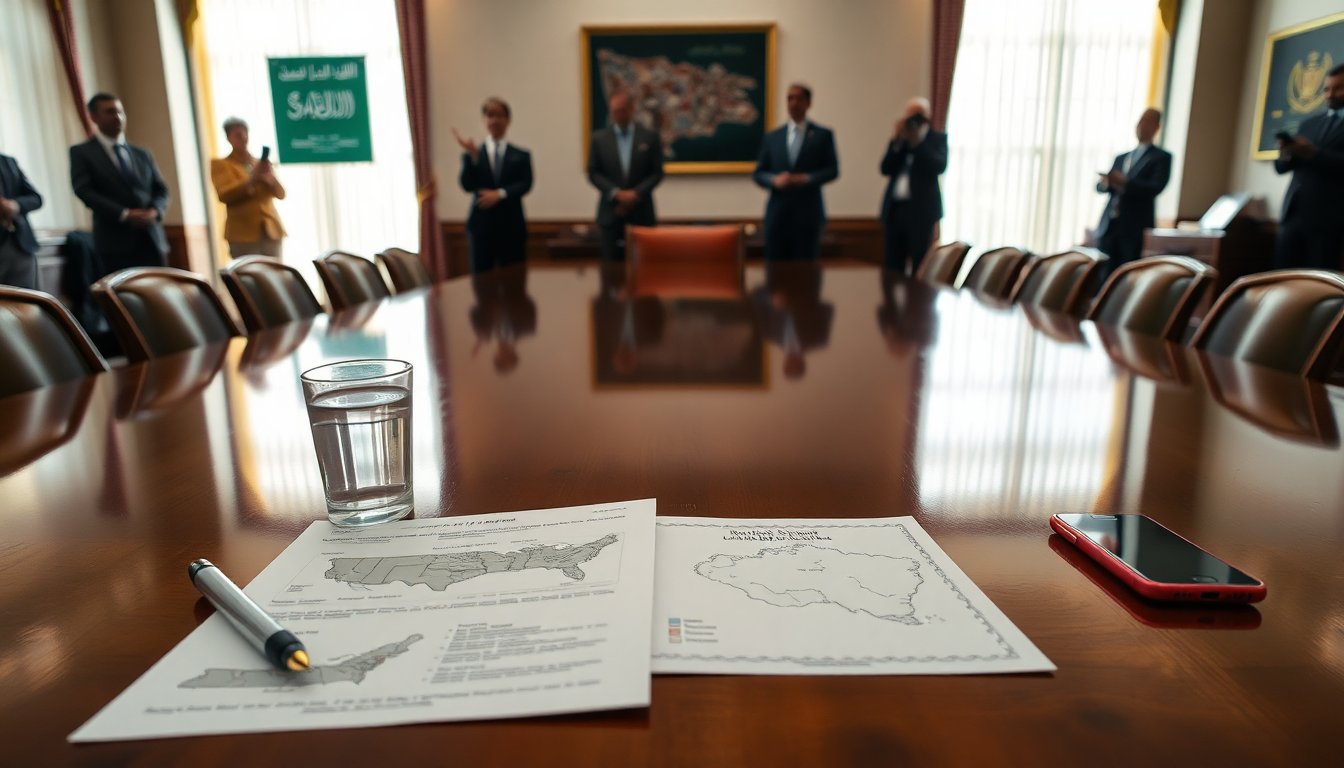Table of Contents
Tensions persist over Khashoggi murder
The tensions surrounding the murder of journalist Jamal Khashoggi in 2018 continue to impact U.S.-Saudi relations. Recently, former President Donald Trump reiterated his stance that Saudi Crown Prince Mohammed bin Salman was unaware of the assassination carried out by Saudi agents. This assertion stands in stark contrast to assessments from U.S. intelligence agencies, which have implicated the crown prince in the incident. As the crown prince prepares for his first visit to the White House in over seven years, the implications of this statement are considerable for both nations.
Trump’s support for the crown prince
Trump’s defense of the crown prince reflects a broader strategy to sustain strong relations with Saudi Arabia. The partnership has faced challenges since the Khashoggi affair, which ignited widespread condemnation and demands for accountability. Nonetheless, the current administration is keen to move beyond this incident, perceiving the crown prince as a vital ally in influencing the future of the Middle East. Trump has described Saudi Arabia as a valuable partner, highlighting the significance of their alliance.
Economic and strategic interests
During the crown prince’s visit, discussions focused on significant economic agreements. Trump announced intentions to sell advanced military technology, including F-35 fighter jets, to Saudi Arabia. This decision has raised concerns among administration officials about Israel’s security and the risk of sensitive technology reaching adversaries such as China. However, Trump appears resolute, suggesting that strengthening ties with Saudi Arabia could facilitate the normalization of relations with Israel, a primary goal for his administration.
The United States and Saudi Arabia have collaborated in the past through the Abraham Accords, which established formal relations between Israel and several Arab nations. Former President Trump believes that incorporating Saudi Arabia into this alliance could create a positive ripple effect throughout the Arab world. However, Saudi leaders assert that any advancement toward normalizing relations with Israel is contingent upon a clear roadmap for Palestinian statehood. This core disagreement underscores the fragile balance necessary in navigating Middle Eastern geopolitics.
Human rights concerns overshadowing diplomacy
While economic cooperation remains a focal point, human rights issues continue to demand attention. Critics have raised alarms over the repression in Saudi Arabia, particularly regarding the treatment of political dissidents and the lack of accountability for the murder of journalist Jamal Khashoggi. Despite efforts by Crown Prince Mohammed bin Salman to improve his international standing through public relations campaigns and social reforms, the persistent reality of human rights violations presents a troubling narrative.
The need for accountability
Human rights advocates stress that the United States must utilize its relationship with Saudi Arabia to demand tangible improvements in human rights practices. Proposed reforms include the release of political prisoners, the lifting of travel bans on activists, and the cessation of executions for non-lethal offenses. The U.S. has an opportunity to make these changes a condition for deeper cooperation, especially as the crown prince seeks enhanced economic and security partnerships.
Additionally, the Saudi regime’s history of transnational repression—targeting critics outside its borders—remains a significant concern. This global reach complicates diplomatic relations and highlights the need for the U.S. to address these human rights abuses openly. Ignoring these issues could not only damage America’s moral authority but also jeopardize relationships with crucial allies.
High stakes in U.S.-Saudi relations
President Trump is set to meet with Crown Prince Mohammed bin Salman, marking a critical juncture in U.S.-Saudi relations. This meeting presents an opportunity to reshape the partnership while addressing strategic interests and the urgent need for improvements in human rights.
By prioritizing accountability in their discussions, the United States can reaffirm its dedication to global human rights. This approach can also help establish a more balanced partnership that serves both nations’ interests. The outcome of these talks will significantly influence the future dynamics between the U.S. and Saudi Arabia, as well as the broader Middle East region.


